This post may contain affiliate links to tours and hotels. These help us earn a small commission at no additional charge to you.
Travelling around Thailand is a rewarding and generally safe experience – however, time after time, tourists seem to be falling for the same old Thailand scams.
From tuk tuk scams in Bangkok to Thailand currency scams, there are a few ways scammers may try to part you from your hard-earned travel money.
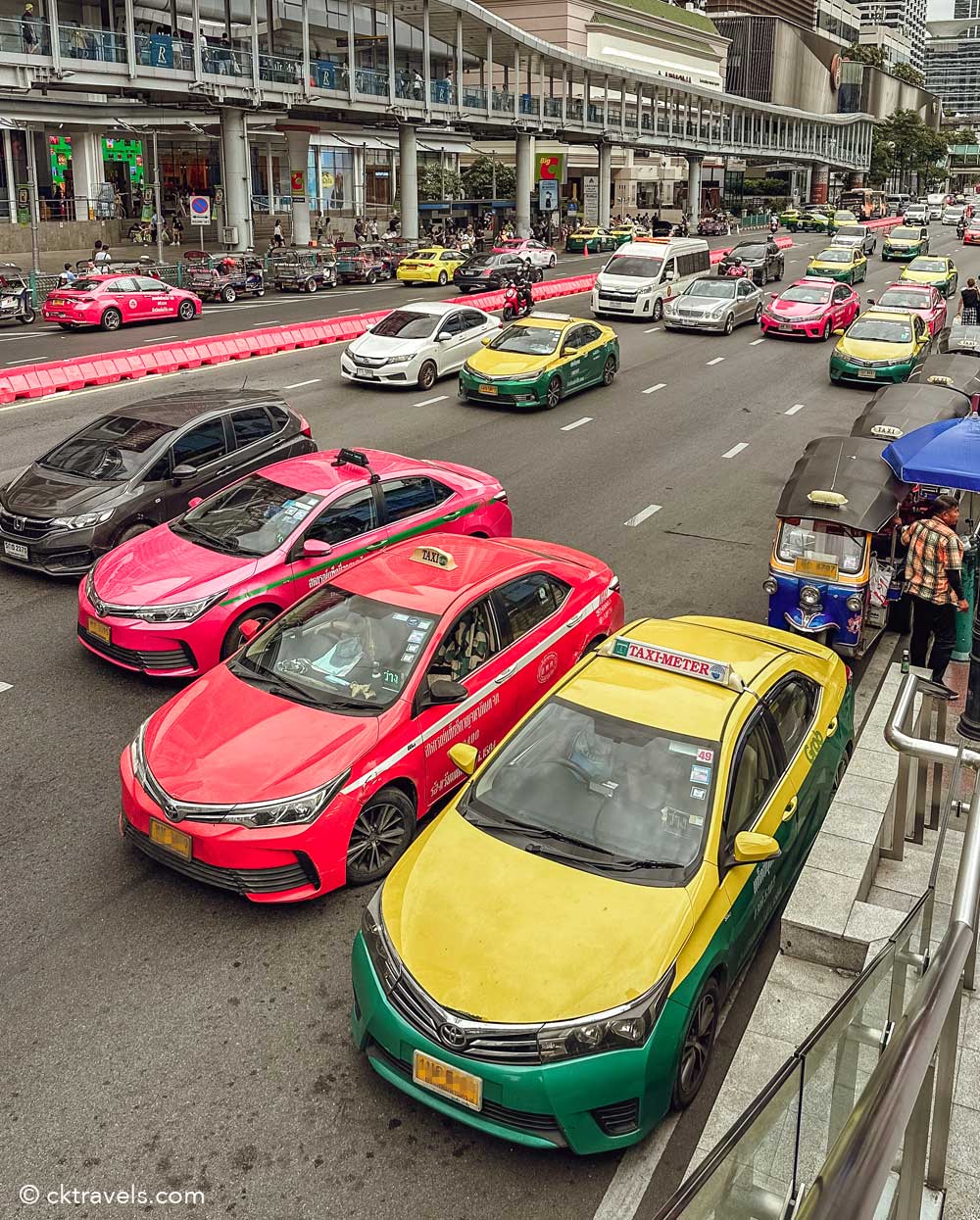
Above all, don’t be put off from travelling to Thailand. Most of these Thailand scams and Bangkok scams are either extremely rare or easy to avoid. We’ve been to Thailand multiple times and nothing has happened (other than being short changed).
From jet-ski scams to fake monks and being ‘stitched up’ by rogue tailors, here is a guide to the most common tourist crimes and scams in Thailand:
And remember – just use your common sense and if something seems too good to be true, then it generally is!
You might like – Things to do in Bangkok at Night >
Table of Contents
Where do most Thailand scams occur?
Scams can occur anywhere, from in person to online before you even arrive – but generally, there is a higher concentration of Thailand scams in tourist centres like Bangkok, Pattaya, Chiang Mai and Phuket.
Thailand scams are most prevalent when hiring or renting transport, on late nights out or in bust areas like outside temples or in malls.
You might like – Bangkok’s best malls >
20 Top scams in Thailand
1. Attraction is closed scam / Palace is closed
Possibly the most common scam in Thailand (especially in Bangkok), sometimes taxi drivers and tuk tuk drivers will tell you a certain attraction is closed to tourists or because of a public holiday.
We’ve even read in some Thailand travel Facebook groups that dodgy security staff at these attractions may come out to back-up the driver’s story.
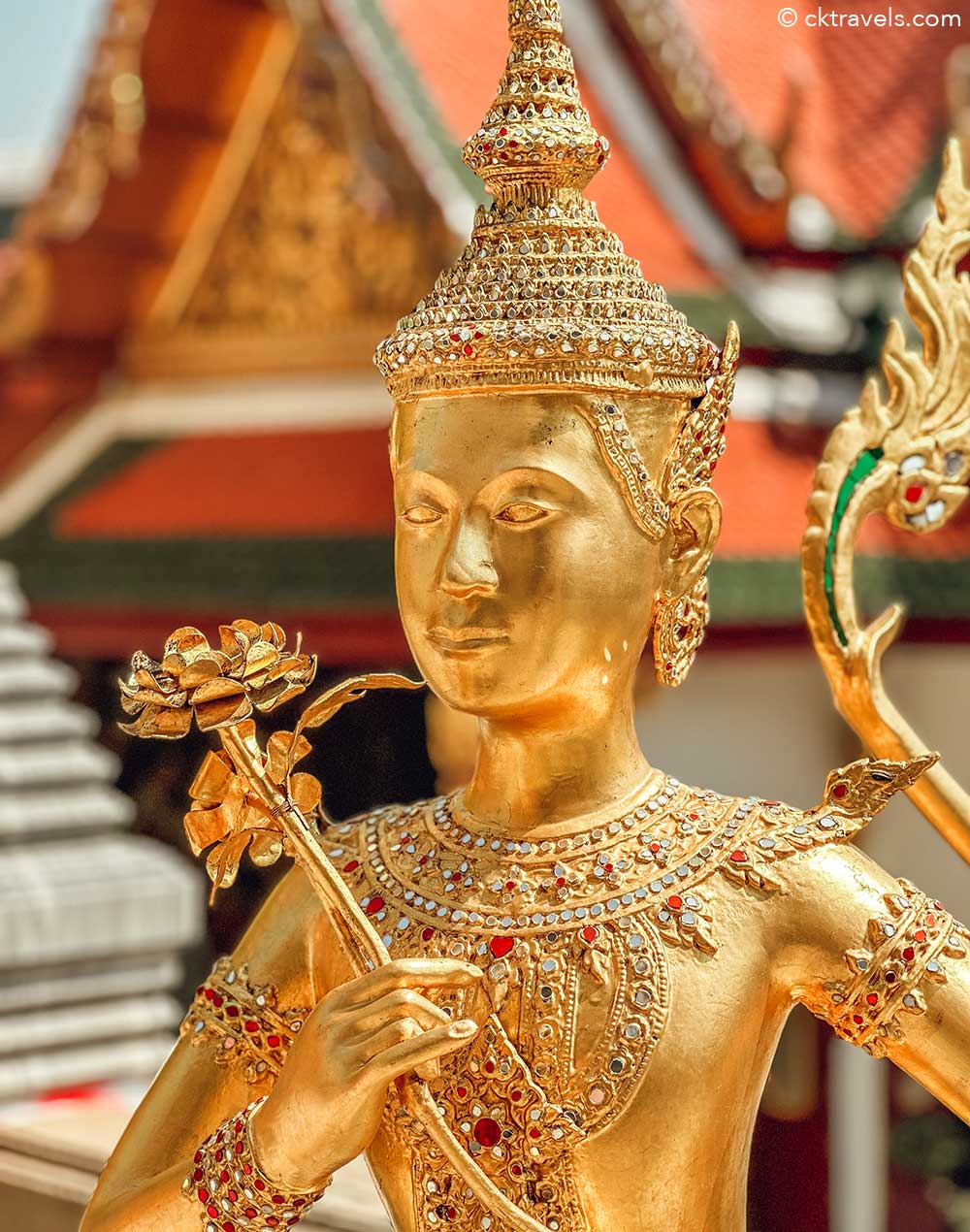
This could be an attempt to take you elsewhere (which will likely involve visits to shops like jewellers or overpriced stores) which may result in a costly trip.
The Grand Palace and other major attractions are generally always open during the day, and only occasionally close for the day for state events or special occasions.
So if you are told it is closed in the daytime, definitely double-check and see what others are doing.
You might like – Go City Bangkok pass review – lots of attractions for one price >
2. Jewellery scams in Thailand
One of the more expensive Thailand scams if you fall prey to it, this classic switch and bait sees you buy supposed gemstones and jewels at highly inflated prices which then turn out to be glass or mainly synthetic / man-made materials.
One extra ‘sweetener’ you might be told is you can buy them at wholesale prices in Thailand then sell them back home for a huge profit / mark-up.
This is often the case when tuk-tuk or taxi drivers insist you visit jewellers on the way to somewhere else or as part of a tour. If you do want to buy jewellery, make sure you do your research online first.
You might like – Things to in Pattaya, Thailand >
3. Government Fuel Scam
Some tuk-tuk drivers will sometimes offer day-trips and to drive around all of Bangkok’s or say Pattaya’s main attractions for a price as low as 50 THB (just over £1 / $1 USD / 1 Euro).
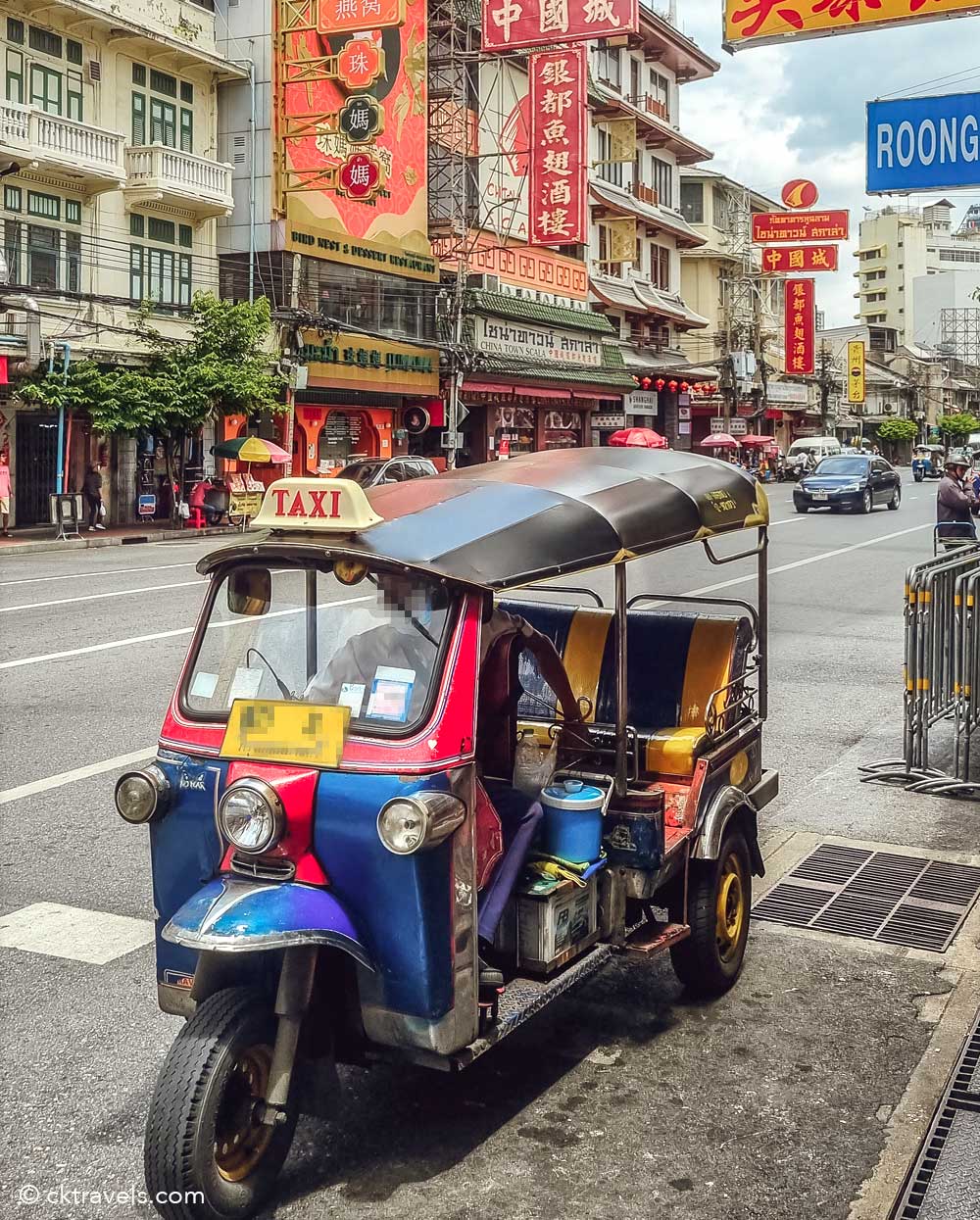
The clincher is that they say’ll something like the Thai Government is paying for all the drivers fuel that day either as a celebration or to boost tourism.
This isn’t true (alas) and you’ll likely be signing up for a day of visiting shops and jewellers plus other activities that rack up the fare.
You might like – Things to do in Talat Noi, Bangkok >
4. Taxi meter / taxi scams
The advice has always been to ensure you take a metered taxi so you know you are getting a fair fare.
This is always good advice but be aware some taxis have doctored taxi meters which mean they speed up or can still charge you an inflated fare (rare but it has happened).
Alternatively, some taxi drivers may refuse to go by the meter, or take longer routes to the airport / hotel than required. If you want a metered taxi and the driver refuses to switch on the meter, you are best to walk away.
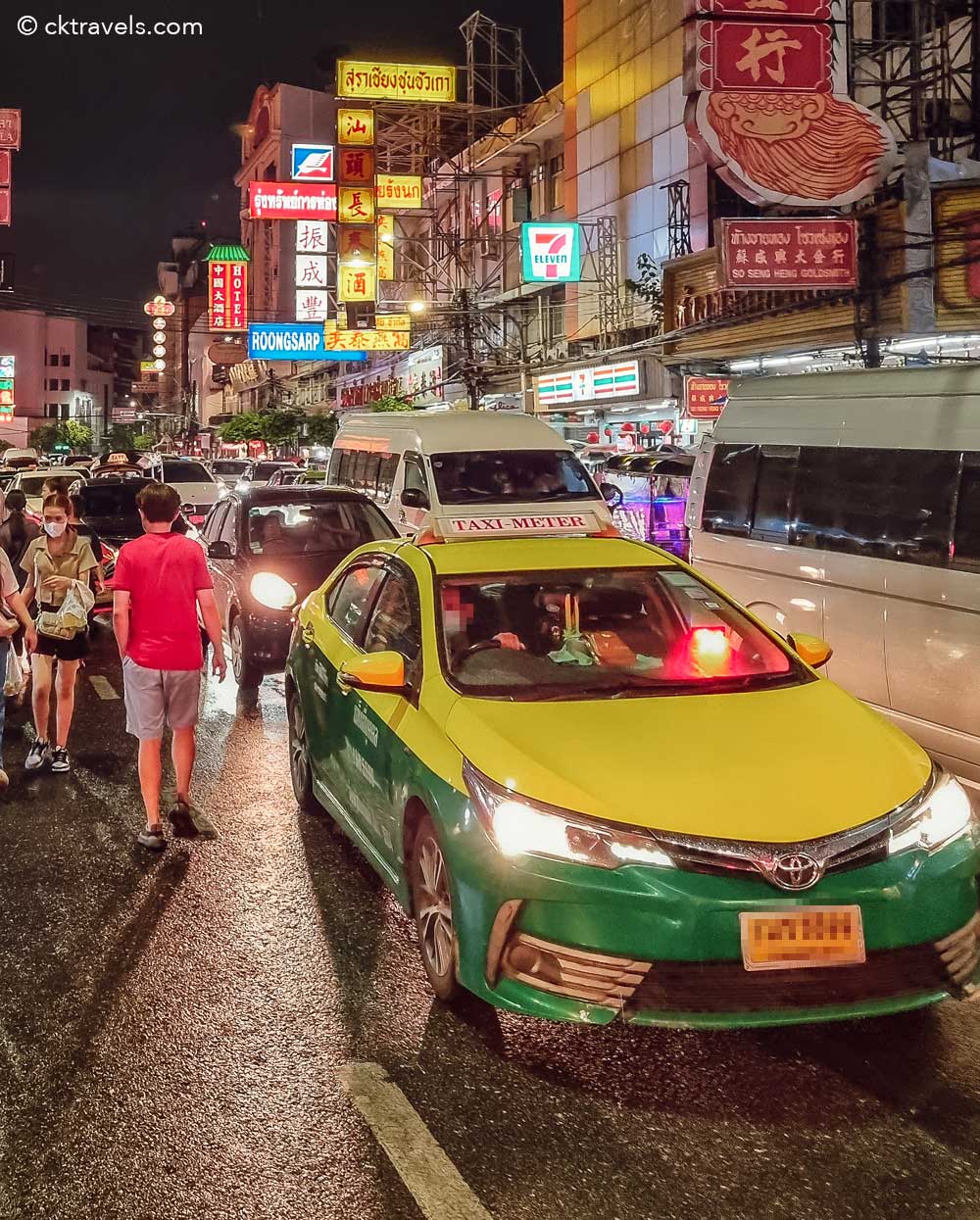
One thing that you may not be aware when getting a taxi to and from the airport (generally in Bangkok) is that there are highway / airport tolls.
Taxi drivers legitimately have to pay these and add on to your fare so if you fare is a little more than expected, it maybe because of this – but usually the driver or app will explain this.
Generally, it is safer to use the Grab taxi app or Bolt app as you will have a record of the driver plus know what the agreed fare is up front (excluding any tolls).
You might like – Things to do in Sukhumvit, Bangkok >
5. Thailand jet ski scams / scooter scams
Jet ski scams scooter scams in Thailand usually happen in beach resorts like Pattaya, Phuket or Hua Hin.
To rent a jetski or scooter, you will (sometimes) need to provide your passport along with a huge deposit.
Upon your vehicle’s return, they may invent some damage that you didn’t do and hand you a hefty bill (often inflated) and threaten to either not return your passport / deposit and involve the police.
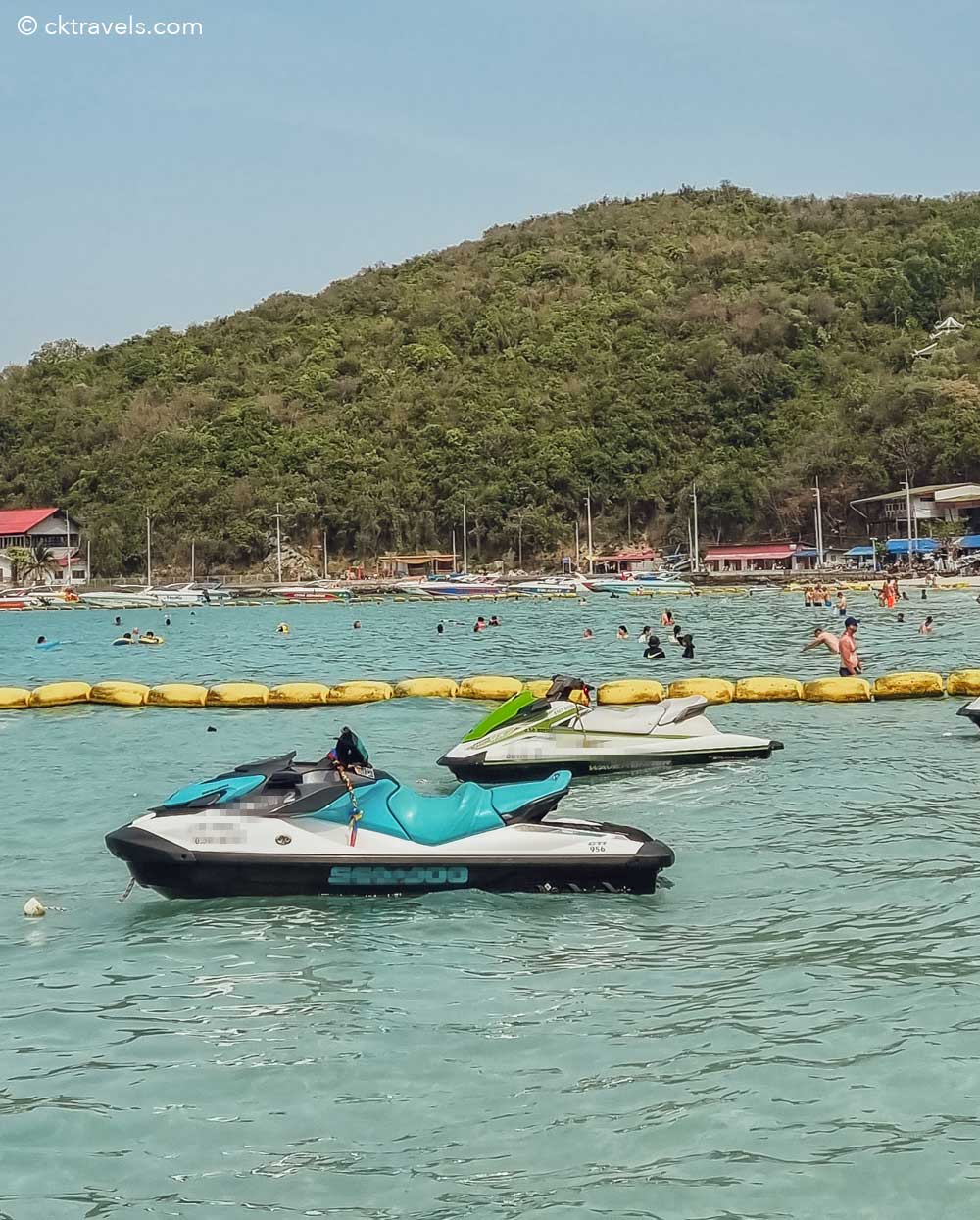
To avoid this, research the hire companies in advance online as people will often share if they’ve been scammed online.
Also try to hand over a photocopy of your passport instead of the real thing and take pictures of any scratches / dents before you leave in full view of the renter.
Another possible rental scam in Thailand is some rental owners supposedly keep spare keys to steal back your scooter / moped whilst it is parked up. Or they fit GPS trackers on your vehicle to track it down and then damage it themselves and present you with a huge bill.
If this happens and the damage wasn’t your fault, it may be worth contacting the Tourist Police as this is a routine occurrence.
You might like – Things to do in Thong-Lor, Bangkok’s hipster district >
6. ‘Curious currency’ scam
We’ve termed this Thailand scam the ‘curious currency’ scam and this is the one that seems to be most prevalent at the moment, based on the sheer amount of travellers mentioning it in Thailand tourist Facebook groups.
The Thailand currency scam goes a bit like this – you’ll be in a mall, street or have just withdrawn money from an ATM when an individual comes up and asks where your accent is from.
They sound genuinely interested and make more small talk about your home country and then ask to see what one of your home country’s bills look like.
Once you show them they will ask to look at it closer. After you hand it over to them, a distraction will be created and they’ll swipe some of your notes (or replace it with a low denomination).
We’ve also read of similar scams but involving Thai Baht – strangers ask to see what a high denomination THB looks like (often when they’ve spotted you take out cash from an ATM) and then ask to see it before switching it for something lower.
You might like – Guide to Jodd Fairs DanNeramit, Bangkok’s newest night market >
7. Bangkok boat scams / khlong scams
Similar to tuk-tuk or taxi scams, boat / khlong scams occur when boat owners and drivers charge highly inflated fares for rides.
We’ve heard a lot about this happening at Damnoen Saduak Floating Market in Bangkok when tourists are being charged upwards of 2,000 Baht for boat trips that should cost no more than a few hundred Baht.
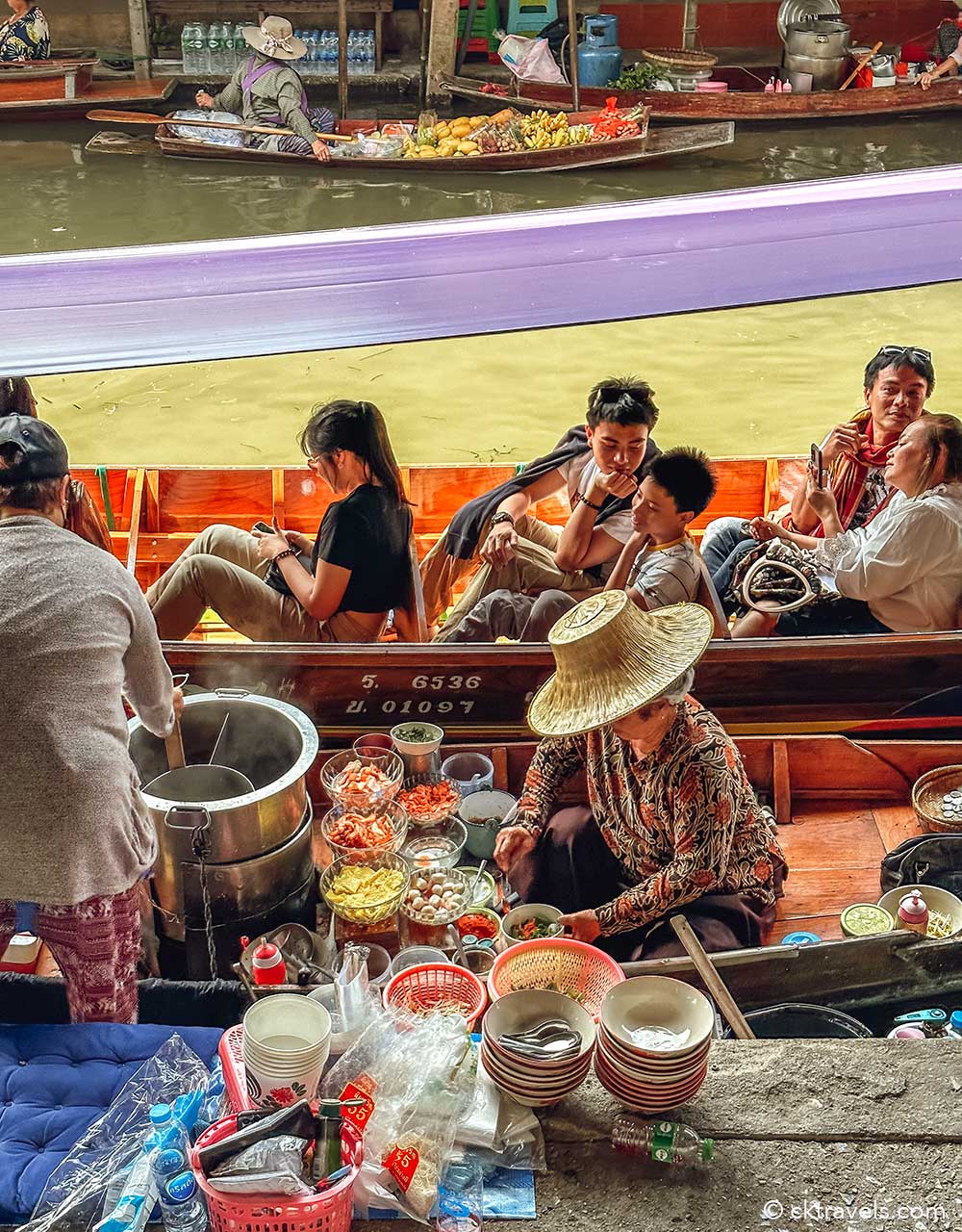
In addition, boat drivers may take you to stalls that have expensive gifts (that cost way more than traditional souvenir stalls) so buyer beware.
This khlong scam in Bangkok happens around floating markets like Damnoen Saduak, the Grand Palace and Chao Phraya river.
We’d recommend taking a group or private tour through Klook, GetYourGuide or Viator which includes all fees. There may be a small mark-up but you shouldn’t get ripped off.
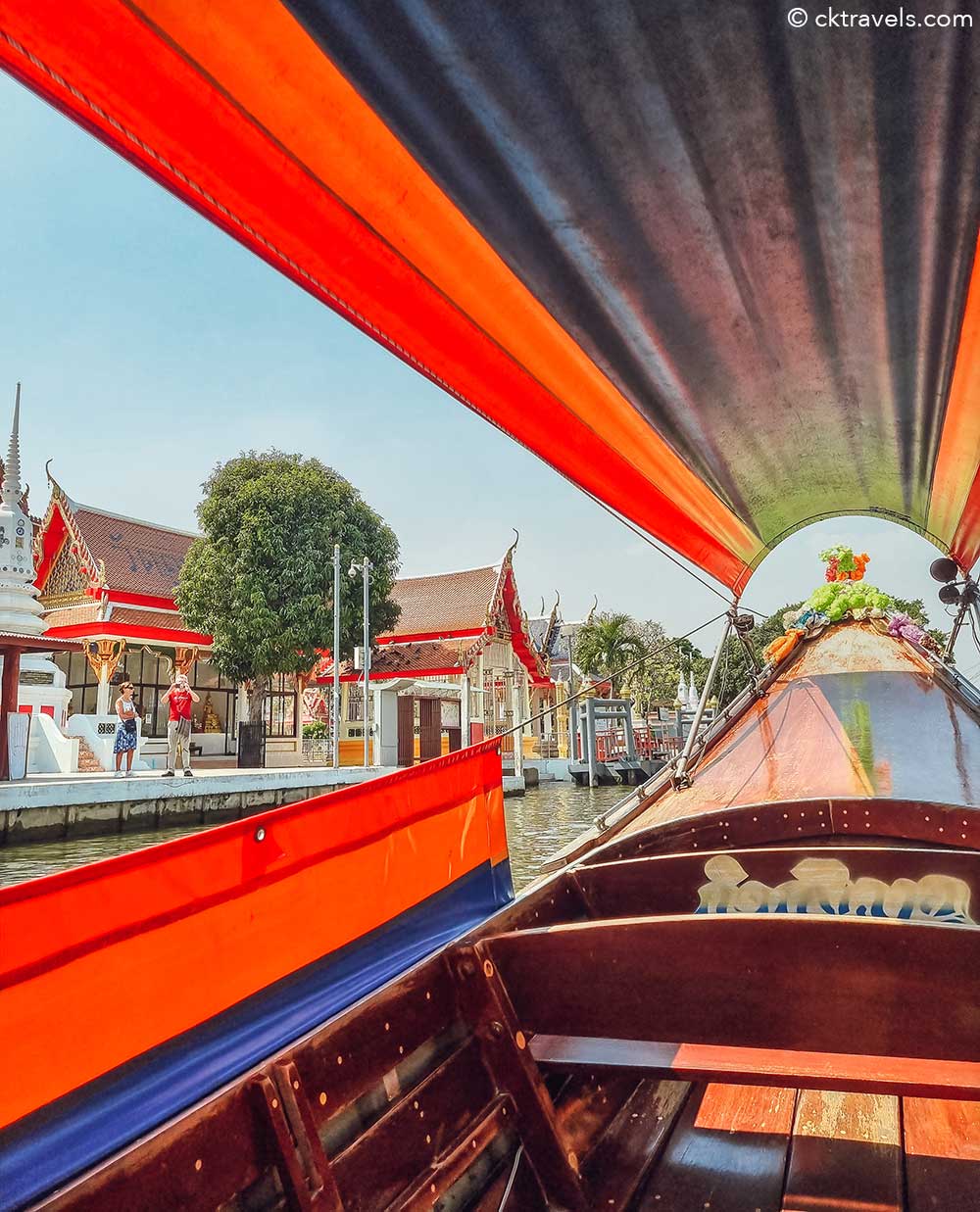
You might like – Guide to Chatuchak Weekend Market in Bangkok >
8. Thailand Tinder scams
Not exclusive to Thailand, but online dating / hook-up apps such as Tinder do seem to have become a hunting ground for vulnerable people online, asking for money to be sent overseas for sick family members or health issues.
These days, AI is also being used on video calls to disguise the faces of those behind the scams so it feels like you are really talking to the person whose picture has been used (often taken from Facebook or LinkedIn profiles).
Be very wary ever sending money to anyone you’ve met online or prior to visiting them in Thailand or elsewhere.
You might like – Guide to all the 7-Eleven Thailand Toasted Sandwich flavours >
9. Foreign exchange scams
Do your research before visiting foreign exchanges in Thailand as some may offer less favourable rates than others.
Also double check the notes you receive before leaving the foreign exchange to make sure they are correct and no sleight of hand has taken place.
Be sure to receive no torn bills back as these cannot be used in Thailand as these cannot be used elsewhere and you’ll be stuck with them.
You might like – Things to do in Ao Nang in Krabi, Thailand >
10. Short change scam
Likely the most popular scam in Thailand (although this could be a genuine accident), always check your change given in restaurants, convenience stores and food courts. It also helps to tot up your bill and know exactly what money you are owed back.
We’ve experienced this a few times – for instance, in the Central Festival food court at Pattaya, when we changed back our dining court payment card for cash, our payment back was 100 THB less than expected.
We showed the cashier the receipt to show the last balance and they then paid up the other 100 THB.
You might like – Best Things to do on Railay Beach in Krabi, Thailand >
11. Fake monks
The ‘Fake Monk’ scam is simply when someone shaves their head and dons red robes and will approach you on the street, looking to give you a gold token, book or beads in return for a donation.
These are not real monks so do not give them any money.
You might like – the best temples in Chiang Mai, Thailand >
12. Tailor scams
One way to get properly ‘stitched up’ is by a Thailand tailor scam – often bespoke suits that are advertised at low prices may end up costing you more than expected or be of a low quality and poor standard with inferior material and unsatisfactory stitching.
If a price is too low to be true, then it probably is best to research tailors online beforehand.
You might like – Guide to Terminal 21 Rama3, Bangkok’s quirkiest shopping mall >
13. Thailand tour scams / repeat payment scams
This is when you hire a car driver or boat driver for an agreed fixed fee upfront and then they hit you with extra fees along the way like park admission.
Always check up front if the fee is the total fee and per person or for the whole group.
We’ve also read online recently about boat drivers who take the money up front in cash and then at the end of the trip, say they haven’t been paid and get all the other drivers to congregate around to intimidate the travellers to pay again.
To try and avoid this, take pictures of any cash payments you give and use registered companies with good online reviews.

You might like – Guide to Asiatique night market in Bangkok >
14. Thai secret police scam / Fake tourism officials
Although pretty rare, there are reports in the past of fake police or bogus tourist officials showing fake IDs and demanding money for some minor misdemeanour you haven’t actually done so always be vigilant.
There are tales of bars and nightclubs faking police raids to extort money. If you happen to be in a club during a ‘police raid’, stay calm and always check for identification.
Also check for police vehicles outside (if you can) to make sure it is real and not a shakedown.
You might like – Things to do in Ari, Bangkok >
15. Ping pong show scams / adult cabaret
A common scam in Pattaya and Patong in Bangkok, Ping Pong shows and adult cabaret are a ‘novel’ form of late night entertainment in Thailand.
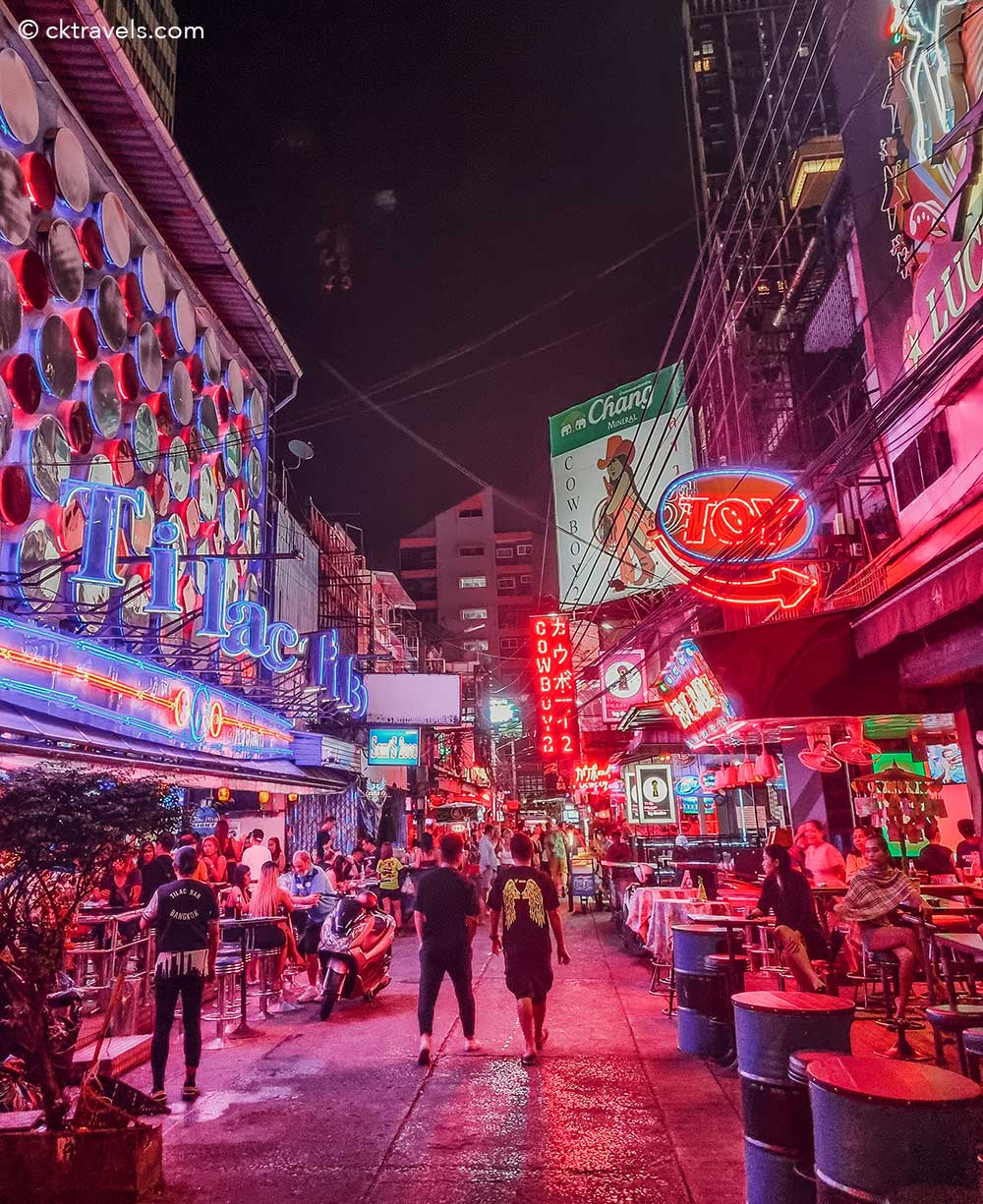
A common scam here is to advertise such a show on the door and charge an exorbitant entrance fee – once in, there is no show and they will make it difficult for you to get your money back.
Drinks inside these venues may also be expensive, especially if you buy drinks for any of the bar girls.
You might like – Things to in Silom, Bangkok >
16. Soi Cowboy / Nana drink scams in Bangkok
We’ve written about Soi Cowboy and Nana before and they are actually a pretty good night out if you just want to people-watch or enjoy cheap drinks.
However, if you go inside the go-go bars and invite ‘company’, you may be in for a much larger bar bill than expected as dances and drinks don’t come cheap. And the big security guards will ensure you pay it all before you leave.
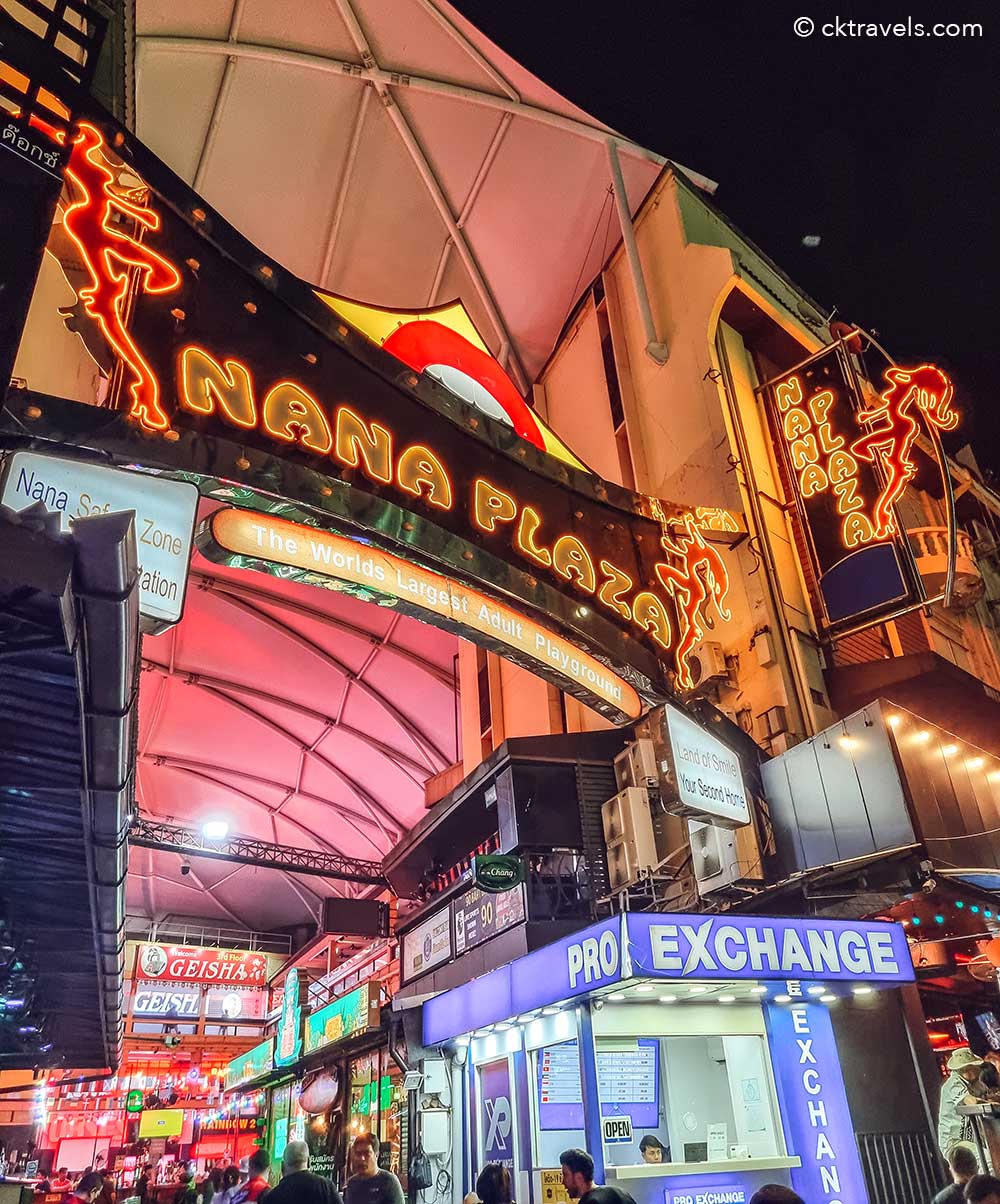
You might like – Guide to Soi Cowboy in Bangkok >
17. Lucky buddha scams (AKA Happy Buddha Day)
In short, the Lucky Buddha Day that you may hear about doesn’t exist. It is often used as a way to encourage you to hop into a tuk-tuk and visit a nearby temple (at a price) on this most ‘prestigious’ of days.
Lucky Buddha Day is just a rouse to get you to buy extra gifts or take a ride that you weren’t planning on (likely via expensive gem stores or shops)
So it is best not to celebrate ‘Happy Buddha Day’ and keep your money!
You might like – The world’s largest 7-Eleven in Pattaya (themed like a cruise-ship)>
18. Drink spiking / Moon Shine
This happens all over the world and not just in Thailand, but be on the lookout for any drink spiking, particularly in full moon parties in Phuket or at late night districts like Nana in Bangkok.
We’d recommend sticking to bottled beers that you can see uncapped in front of you.
Also some of the spirits at these bars / full moon parties aren’t branded and sometimes homemade so can cause sickness (or worse).
You might like – 50+ things to buy in Thailand 7-Eleven stores >
19. Pickpocketing and bag snatching
Pickpocketing in busy areas like at Chatuchak weekend market or on public transport can be a risk and a common Thailand crime (but this is true of anywhere, not just Thailand).
So always keep an eye on your belongings and consider an underclothing money-belt.
Whilst we haven’t had our bags snatched in Thailand, you can read about how we were victim to a gang cutting into our bag at Marble Mountains and stealing our phone >
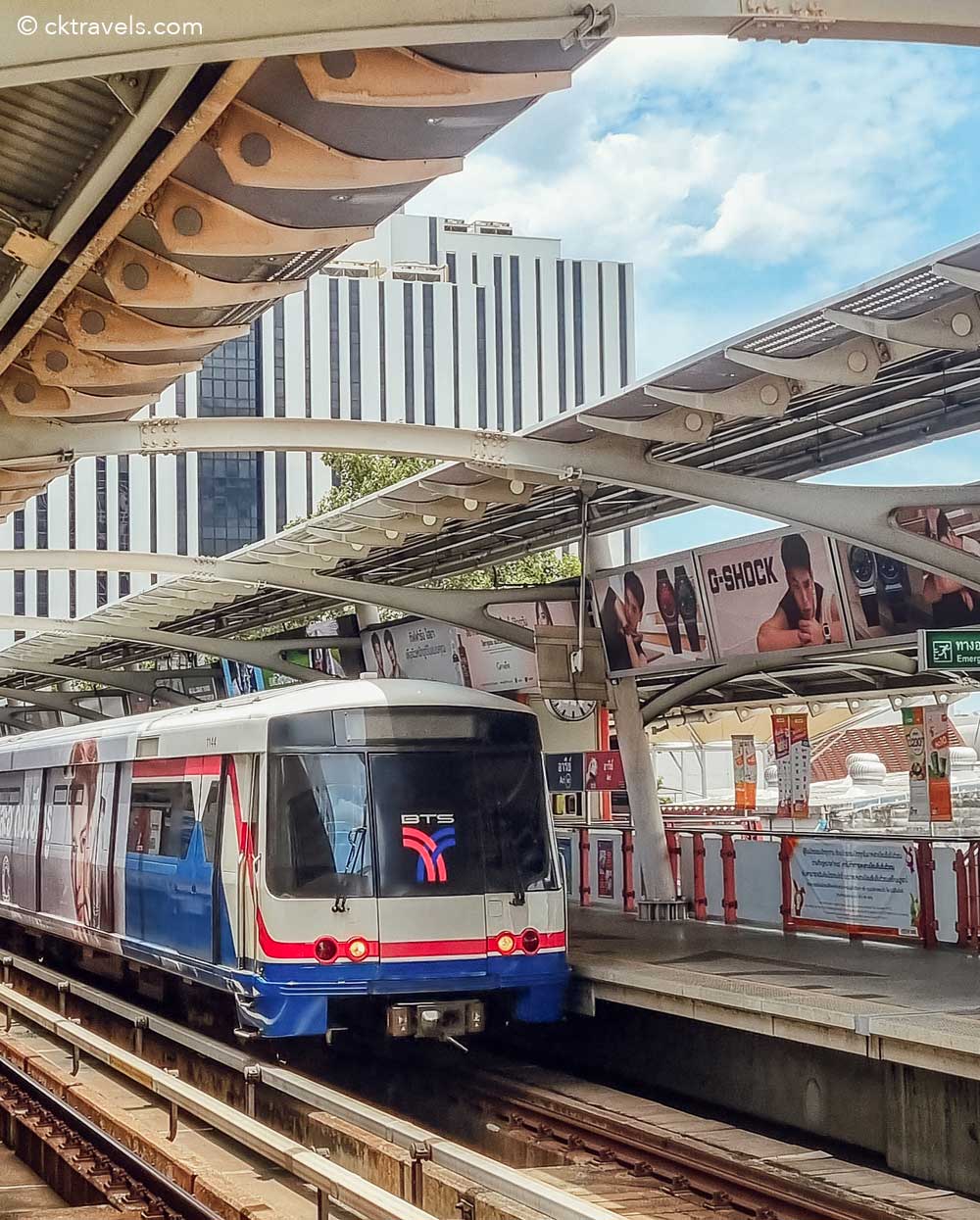
Our final Thailand scam and tourist crime…
20. Bird Food Seed
Keep a (bird’s) eye out for the bird food scam feed. This is when you’ll be in a public park or open space and someone who is already feeding birds will then invite you to join them and hand you some seed.
You are then asked to pay for the birdfeed or buy your own bag – not usually a costly scam but just one to be aware of.
You might like – The best night markets in Chiang Mai >
What to do if you fall victim to a Thailand scam / Bangkok scam
Whilst many of these Thailand scams can be quite minor (like short change or paying for birdseed), if you have fallen prey to a costly or scary scam, you may want to contact Thai tourist police or file a report with Thai police.
This may also help with insurance if you are looking to reclaim money.
Thai Tourist Police can be contacted by dialling 1111 or 1155 with lines set up for foreigners to report such matters.
If you have used a credit card for any of these inflated or scam purchases, you can also contact your credit card company to either stop payments or get their assistance for reimbursements.
It is also advisable to ALWAYS travel in Thailand with travel insurance.
Thailand scams – a final word
Remember, Thailand is an incredible country and the chances are you’ll have a safe and superb time. If you use your common sense, falling prey to scams in Thailand is a rare occurrence!
Other Thailand posts you might like
- Best Chiang Mai Night Markets
- Things to do in Bangkok at night
- Things to do in Thonglor, Bangkok
- Things to do in Sukhumvit, Bangkok
- Things you can buy in Thailand’s 7-Eleven stores
- Go City Bangkok Pass – is it worth buying?
- Best Shopping Malls in Bangkok
- Things to do in Pattaya, Thailand
- Things to do in Nimman, Chiang Mai (Nimmanhaemin Road)
- Asiatique Night Market on Bangkok’s Riverfront
- Ao Nang beach resorts, Krabi – best affordable hotels
- Things to do at Railay Beach, Krabi
- Benjakitti Forest Park (Benchakitti) in Bangkok
- Cabbages & Condoms Restaurant in Bangkok
- Things to do in Silom, Bangkok
Did you enjoy our Thailand scams guide blog post? Let us know in the comments or by sharing it on social media.
You can follow CK Travels on:
Instagram
Facebook
TikTok
YouTube
Pinterest

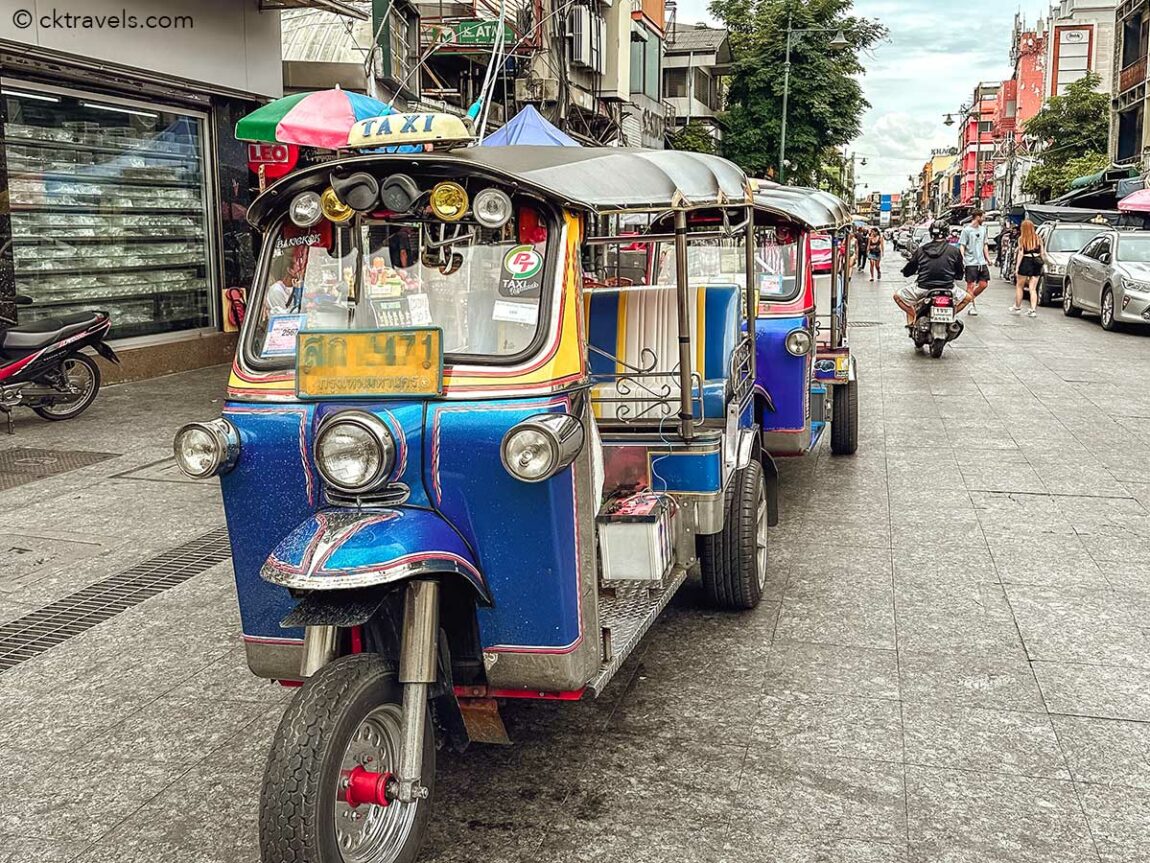
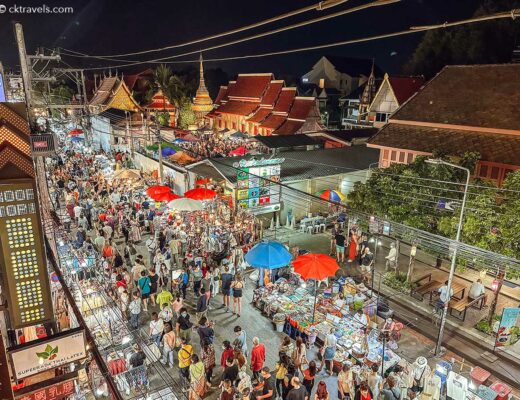
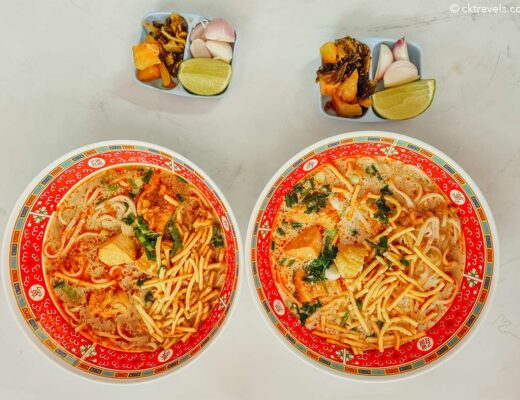

No Comments